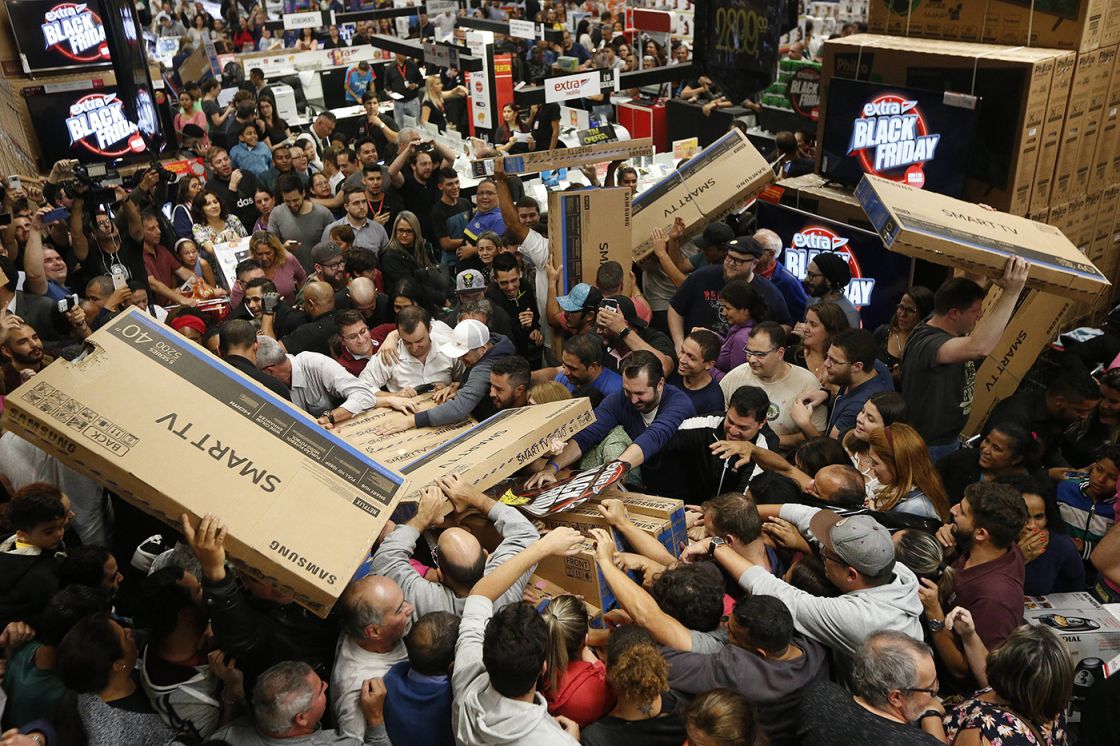- Articles
- Posted
Black Friday… A Name Fitting in Many Ways
In the US, “Thanksgiving” is celebrated every year on the fourth Thursday of November, and for the longest time, children were taught that this was a celebration of the colonists and the Native Americans coming together to give thanks… for what exactly, no one ever seemed to wonder. However, in recent years, other stories surfaced about this commemorating a celebration of colonial soldiers who had just slaughtered hundreds of Native Americans.
The above is a very short version of the horrendous roots of this “holiday” that has become an essential American tradition. However, along with Thanksgiving, comes what has become known as “Black Friday”, which is the Friday right after Thanksgiving Day, and which is supposedly one of the busiest, if not the busiest shopping day in the US. This is mostly due to the sales and shopping deals that retailers in the US offer to incentivize American consumers to buy their merchandise.
The name originated in the early 1950s in the city of Philadelphia, where hordes of people would flood the city the day after Thanksgiving that the city’s police force would need backup and work long shifts to be able to control the chaos and traffic jams, along which certain crimes like shoplifting would increase. The name for the day stuck in Philadelphia even when its main characteristic became associated with high shopping activity. It was not until the mid 1980s that the name got adopted nationwide and became associated with the “official kickoff” of Christmas shopping season.
Considering where capitalism was, particularly in the US in the 1980s, the timing of adopting the “Black Friday” name makes sense. Perhaps what is even “blacker” in the holiday itself is making it an “official” day that celebrates mass consumerism.
Black Friday lures massive number of Americans to shopping centers and stores, often literally stomping on top of each other, to get the “amazing” deals and spend massive amounts of money on things that are rarely essential products, thus often buying things they do not need with money they do not really have (with the high levels of debts accumulated on credit cards), all the while fueling the vicious cycle of capitalism that is eating them away slowly.
A few centuries after the horrific actions of the colonialists against the Native Americans took place, then giving it a positive spin by turning it into a holiday and naming it “Thanksgiving”, capitalism seems to be doing the same thing to “modern day Americans” that it had done to Native Americans, in a manner that might be less bloody but certainly not less deadly.



 Reem Issa
Reem Issa